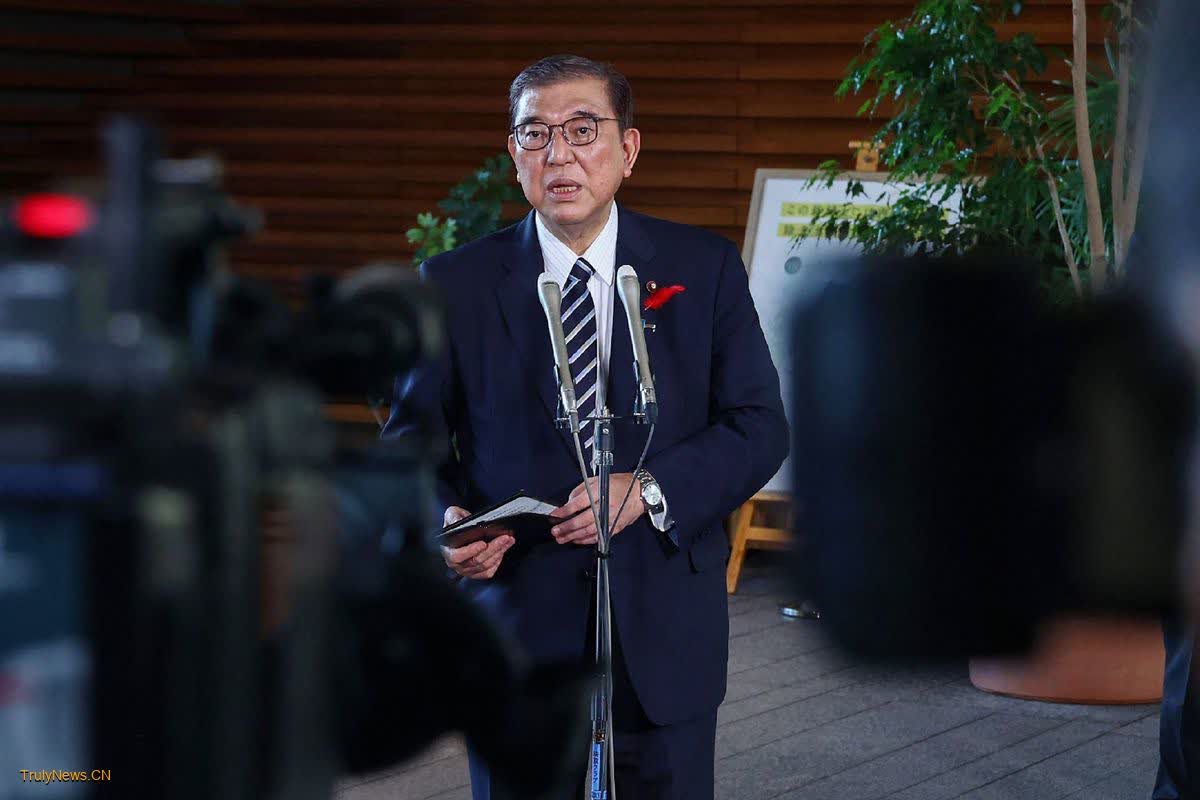
Chinese President Xi Jinping on Tuesday sent a congratulatory message to Shigeru Ishiba on his election victory as the prime minister of Japan, replacing Fumio Kishida.
President Xi pointed out that it is in the fundamental interests of the two peoples for the two neighbors to follow the path of peaceful coexistence, friendship from generation to generation, mutually beneficial cooperation and common development.
On the same day, Chinese Premier Li Qiang sent a congratulatory message to Ishiba, saying that the two sides should maintain the political foundation of bilateral relations, strengthen friendship, mutual trust and cooperation, and better benefit the people of the two countries.
These moves show that Beijing attaches great significance to taking advantage of the opportunity of the power transition in Tokyo to bring the development of the Sino-Japanese relationship back onto the right track, while some external forces are trying to derail further it to meet their own narrow ends.
Although the Japanese side indicates that Kishida stepped down to pave the way for a fresh leader after scandals dogged his government, it is widely believed that it was only an excuse to cover up the true cause of Kishida’s quitting.
The Kishida government’s one-sided pro-United States policy over the latter’s China-containment strategy over the past few years has seriously impacted not only Japan’s relations with China and some other neighbors but also the country’s economy, which entered inflation soon after ending its deflation last year.
The Kishida government has also failed to resolve some long-term challenges faced by Japan, such as a widening income gap and unemployment, despite the uproar it created in regional geopolitical games doing Washington’s bidding.
That also explains why Ishiba vowed to tackle a slow economy and regain public trust after he took office on Tuesday.
Yet, simultaneously, the new Japanese leader pledged to stick to the Japan-US alliance. Although he calls for the alliance to be more equitable —anything but strategic autonomy — indicating his malcontent with his predecessor’s compromise of Japan’s national interest in it, Ishiba spoke by telephone with US President Joe Biden early Wednesday to show the importance it attaches to Japan’s relations with the US.
Ishiba told reporters in his first news conference as prime minister that he reassured Biden of his plan to further strengthen the Japan-US alliance, and his government calls for stronger military cooperation with like-minded partners. He has been vocal about his wish to form a NATO-like alliance in the Asia-Pacific.
That being said, even if Ishida is well aware the domestic problems left by the Kishida government are interconnected with its lopsided foreign policy — if not a risky gambling of Japan’s future on the US winning its contentions with China — and it is also determined to resolve these problems, it still cannot free itself from the shackles it inherits from its predecessor.
Ishida should cherish the goodwill Beijing has clearly expressed with the Chinese leaders’ congratulatory messages, and make sure his government does not waste the window of opportunity to repair Sino-Japanese ties, which will be of tremendous significance to helping Japan boost its economy.
It is thus to be hoped that Japan will work with China to abide by the principles and consensus of the four political documents between China and Japan, comprehensively promote the strategic and mutually beneficial relationship between the two countries, and strive to build a constructive and stable China-Japan relationship that meets the requirements of the new era.